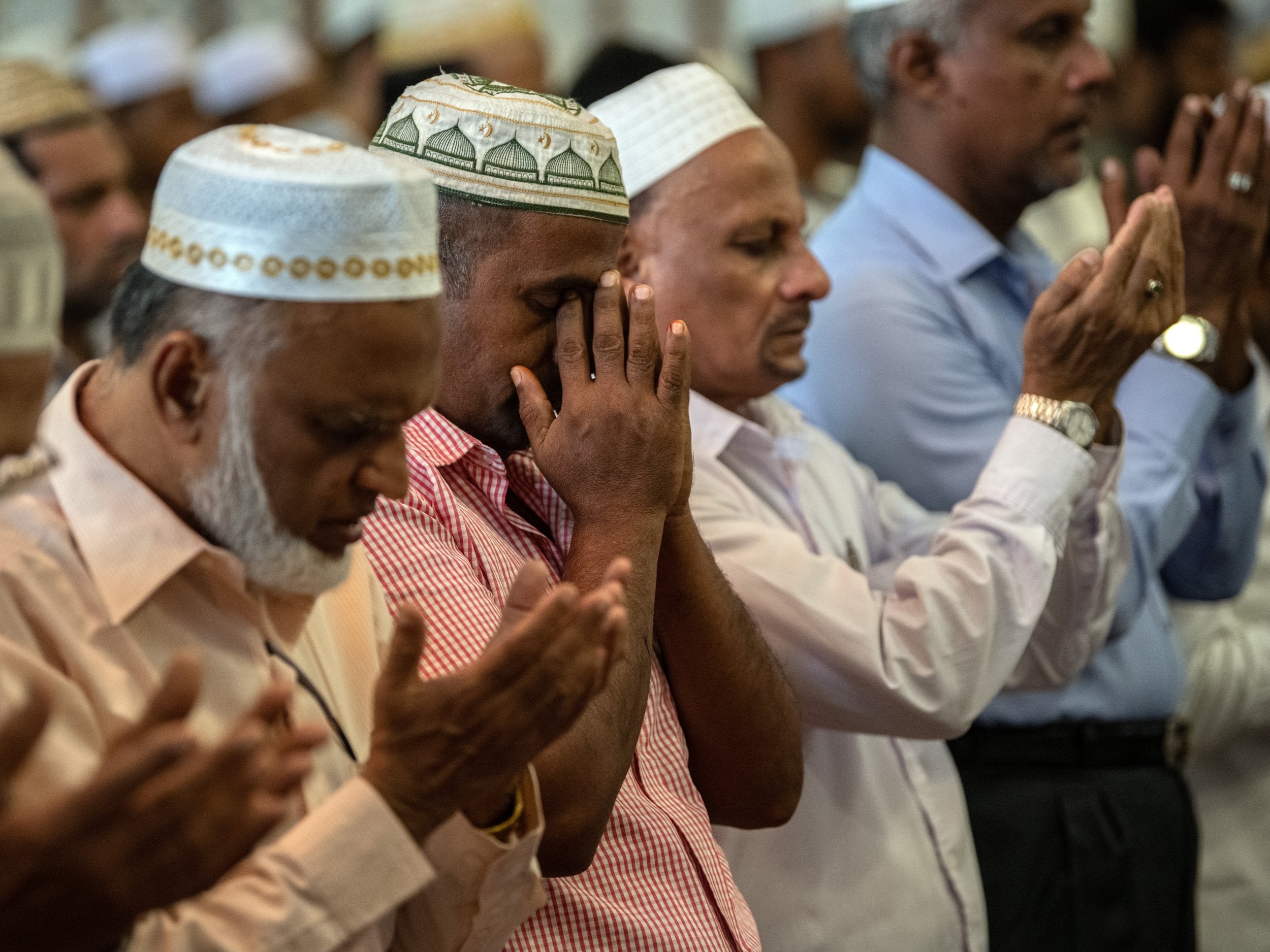Sri Lanka bombings ringleader died in Colombo hotel attack, president confirms
Police say they are chasing 140 people in Sri Lanka with suspected links to Isis

The ringleader behind the Easter Sunday bombings in Sri Lanka is believed to have died in the attacks, the president said, as authorities hunted as many as 140 people suspected of links to Isis.
Speaking at a news conference on Friday, President Maithripala Sirisena said Zahran Hashim, also known as Mohamed Zahran, was one of the two suicide bombers who targeted the Shangri-La hotel in central Colombo.
After authorities revised down the death toll from Sunday’s attacks from 359 to “at least 253”, Mr Sirisena admitted it had been “very difficult” to establish the precise number of casualties due to the state the bodies were in.
Zahran was a radical preacher on YouTube with thousands of followers and was named prior to the attacks in an internal police document.
The three-page memo, which the president said was not shared with his office, said Zahran was the leader of National Thowheedh Jamaat (NTJ), a newly formed jihadist group intent on carrying out attacks on churches and hotels.
Police said they had detained the NTJ’s second-in-command, among more than 70 arrests made in the days since the attacks.
Isis claimed responsibility for the bombings on Tuesday, and police said in a post on Twitter that the militants were thought to have received some weapons training overseas.
Earlier on Friday, the Australian prime minister said it was confirmed that the attackers had been supported by Isis. Scott Morrison said Isis’s central leadership had been involved in selecting the targets.
With the UK, US and other governments warning their citizens of an ongoing threat of more attacks in Sri Lanka, Mr Sirisena said investigations showed there were 140 people in the country involved in Isis-linked activity. "Police are looking to arrest them," the president said.
Some of the links dated as far back as 2013, he said, adding that action was being taken over the failure of the security services to prevent the attacks from taking place.
Defence Secretary Hemasiri Fernando resigned on Thursday, and Mr Sirisena said the inspector-general of police, Pujith Jayasundara, had “said he will resign now”.
Also on Friday, police initially identified six prime suspects over the bombings, listing their names and pictures in a post on Twitter.
But the message was deleted a short while later after the picture of an American Muslim woman, who campaigns against media stereotypes about Islam, was mistakenly included in the list.
Activist and author Amara Majeed wrote on Twitter: ""I have this morning been FALSELY identified by the Sri Lankan government as one of the ISIS Easter attackers in Sri Lanka. What a thing to wake up to!"
Sri Lankan police confirmed the error in a statement. The main Twitter account linked to the force later appeared to have been deleted.
Meanwhile, almost 10,000 soldiers were deployed across the island nation on Friday to carry out searches and provide additional security at places of worship.
The government and religious leaders requested Muslims stay at home rather than go to communal Friday prayers, and Cardinal Malcolm Ranjith also appealed to Catholic priests not to conduct mass at churches until further notice.
Some Muslims did brave the threat of further attacks to venture out on Friday afternoon to pray.
Hundreds gathered at the Masjidus Salam Jumma mosque in Colombo, some praying through tears to Allah to help their fellow countrymen.
Those who carried out the attacks were “not Muslims”, said Akurana Muhandramlage Jamaldeen Mohamed Jayfer, the chairman of the mosque.
He told the Associated Press: “This is not Islam. This is an animal. We don't have a word [strong enough] to curse them.”
There are growing fears among the minority Muslim community of a violent retribution after the attacks. The Independent visited Muslim traders at the normally vibrant Pettah market in Colombo on Thursday, finding many shops shutting early amid the heightened tensions.
At the Kollupitiya Jumma Masjid mosque on Friday, a short walk from St Anthony’s church which was among the targets last Sunday, soldiers hurried on dawdling worshippers and sniffer dogs checked vehicles.
"It's a very sad situation," 28-year-old sales worker Raees Ulhaq told Reuters. “We work with Christians, Buddhists, Hindus. It has been a threat for all of us because of what these few people have done to this beautiful country.”
Additional reporting by agencies
Join our commenting forum
Join thought-provoking conversations, follow other Independent readers and see their replies
Comments
Bookmark popover
Removed from bookmarks